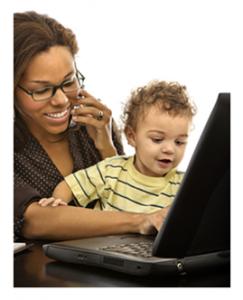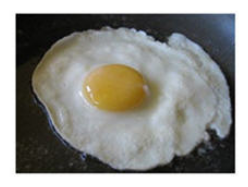If you’re a parent, then you feel guilty.
About something.
 Especially if you’re a single parent.
Especially if you’re a single parent.
So, can anything good come of parental guilt? Is guilt telling me something I need to hear? Should I kick it to the curb and be done with it?
- When I yell, I feel guilty. Okay. Legitimate.
- When I have to say no to an opportunity, I feel guilty. Understandable.
- When I glance around our tiny home, remembering where we lived before, I feel guilty. This is understandable, too – but unreasonable.
On the downhill slide into guilt, selective memory is our guilt-enabler. We compare a challenging situation to warm memories of our own childhoods or to pre-divorce days of two parents with two incomes. But those comparisons are distorted. They’re apples to oranges.
Single parenting is difficult.
Do I really think I haven’t done right by my sons?
No. I’ve done the best I could. Single parenting is more difficult than I could have imagined – by virtue of logistics (one parent to manage two kids), finances (never enough money), fatigue (work, kids, rarely a moment to oneself), and emotional isolation (no “partner” to share the headaches, the decisions, or the joys).
Did I set out to be a single parent?
Hardly. Like most people, I expected my marriage would be solid and parenting would be a partnership. But life intervenes, and we do our best. There’s that phrase again – we do our best.
This is true for all parents, single or married, isn’t it?
So why the single parent guilt?
Why do so many single parents feel so guilty, so often?
We get stuck in “if only.”
- If only I could have done something differently, so the marriage would’ve worked.
- If only I could have given my children the stability of our old home and neighborhood.
- If only I had thought to include X, Y, or Z in the support agreement.
- If only I had a better attorney.
It’s normal to want everything for our children, but it’s unhelpful to believe that our efforts are never enough or to assume all the responsibility for a scenario that involves two parties.
You may tell me that all parents feel this way – as though they aren’t doing enough or giving enough. I would agree. But single parents who have divorced may carry a heavier load, not only because the family unit is no longer intact, but because finances and logistics strain every resource needed to parent well.
The result, at times, may not be a pretty one.
Mother to mother comparisons
I remember my mother ensuring every possible educational opportunity, no matter what. However, I grew up in a college town and a cultural center. Access to activities or classes was easy, and could be accommodated on foot or by bus.
Those were different days: the family doctor made house calls, a child could walk miles to a lesson without concern, there were no endless carpool lines.
I also recall (a healthy) dinner on the table each night, rowdy road trips to spend holidays with grandparents and cousins, and other events that have made for entertaining stories passed on to my children.
My mother was far from an ideal example of a loving parent, and my father, who was frequently not home (as was often the case in that era), left a mark by virtue of his absence.
Yet the routine, the stability, the security all served to ground me in a sense of belonging. I credit my mother with that – despite the issues we had.
New parenting realities
When I was growing up, women stayed home, men provided income, a network of other mothers was available to assist, activities were accessible, and divorce was much less common. My parents were married for 30 years.
That was a time when raising children was considered a valuable full-time job.
Mothers also gave birth in their twenties. I gave birth a full ten years older than my mother, and while having babies may not have been an issue, raising them – especially in these times – is another matter entirely.
Netting things out, it’s a whole other world. Wanting the best for our children is natural, but most of us can’t possibly provide it as we envisage it, certainly not on our own unless we have resources to assist – physically, logistically, emotionally, and financially.
Good guilt, bad guilt
So is this parental guilt of any purpose whatsoever? Is there good guilt as well as bad?
Most of the mothers I know feel guilty: not enough time (if they’re working parents outside the home), not enough money (for lessons, clothes, camps, travel, schools), not enough of themselves – particularly if they’re single moms or older moms.
Good guilt? It’s a legitimate notion if guilt arises because you’ve been out every night and your teen needs to talk. Then, guilt is an emotion that serves a purpose. Good guilt is a warning flag that nags at our sensibilities until we change behavior.
Bad guilt? What about taking one night a week for yourself if you can afford it? What about a weekly date or evening class? What if you take a small amount of time to be alone, which for some of us is a rarity?
If you feel guilty about that, I get it – but stop! Bad guilt is a bad call; it’s pointless time in the penalty box. Let’s admit that raising kids is stressful and exhausting. You need a “you.” A calmer or happier or simply saner you – to share with your children, and naturally, for yourself.
Seth Godin’s Egg
Marketing guru, Seth Godin, provided a nice parable this morning (perhaps without realizing its far-reaching applicability). He wrote of the distinction between a “diner egg” – reliable, acceptable, perfectly edible – and one he occasionally cooks for himself at home.
The extra pennies and minutes allow for a tastier free-range egg, better oil in the skillet, a perfectly crisped edge, and an eating experience that becomes special. Godin’s lesson is about quality – bringing something extra, when we can.
 I immediately thought about my parenting – the ensemble of memorable moments created with my sons. They’re different from those in my childhood, but no less wonderful, and no, I’m not talking about the “quality time” mantra of the 90s. I’m referring to small surprises when least expected – a favorite cake, baked for no reason. A note of praise left on a pillow. Or allowing all those teenage friends to sleep on my living room floor, night after night.
I immediately thought about my parenting – the ensemble of memorable moments created with my sons. They’re different from those in my childhood, but no less wonderful, and no, I’m not talking about the “quality time” mantra of the 90s. I’m referring to small surprises when least expected – a favorite cake, baked for no reason. A note of praise left on a pillow. Or allowing all those teenage friends to sleep on my living room floor, night after night.
Our parenting legacy, by example
We all have the ability to create quality moments – when we can. They transform less than desirable situations (in our minds) into happier ones, and solidify good memories. They help form our children, and reinforce our own knowledge that we’re doing right by those we love.
This is our legacy, as much as any other. Indirectly, we teach our children everything by example – the good and the bad. Do we really want them to feel guilty about their parenting? Don’t we want them to take time for themselves and their own dreams, as well as their responsibilities?
When it comes to parenting, I’m reconciled to a certain amount of guilt. But I’m also pondering the wisdom of Seth Godin’s egg.
You May Also Enjoy
How I love this post! The parenting guilt is inescapable. My tendency is to feel guilty about everything. If I can give the kids what they want, I worry about spoiling them. If I am unable to give, then I feel as if I am a bad mother.
But, you are right. The small things make a significant difference.
Wonderful article! Posting everywhere I can today. Thanks for the wisdom and heartfelt outreach…I too feel guilty, I too wonder what if, and I too am settled knowing I’m doing the best I can (fried eggs at home and all).
So glad you enjoyed, Kristy! And thank you for reposting!